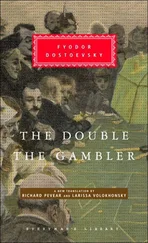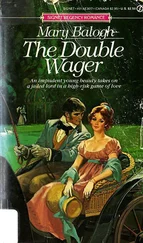Marissa guessed that her father would say something to her about frightening Cindy, but she didn’t think he would be all that stern. After all, torturing a sibling was practically in a big sister’s job description. She wondered if, by any chance, her dad’s girlfriend really did have any pictures of apple trees. Not likely, but you never knew. She made a mental note to ask Laurel what kinds of things she photographed the next time they were together. Maybe Laurel could even take her picture. A headshot. A really professional headshot. She didn’t have one, and it frustrated her every time she went for an audition. And there were a couple of shows coming up at a theater in Burlington that had parts for a little girl, and so she had to be ready.
Laurel, of course, was a girl with a serious secret. Marissa didn’t know quite what it was, but it wasn’t a happy one. She guessed that someday she’d know, especially if Laurel and her dad continued to date-which she hoped they would. Laurel was more like a big sister who never bossed you around than her dad’s current squeeze. They’d gone shopping for clothes a couple of times, just the two of them, and had a blast. And Laurel had a cousin who was into musical theater, too, and so she actually knew the words to some of the songs from the shows Marissa had been in. But Marissa had also spent just enough time around Laurel to get a glimpse of the darkness behind the curtain.
She took a final bite of her apple and then hurled the core toward one of the posts on a nearby split-rail fence (missing it completely), and started walking up the slope to her father and her sister. She realized she was facing an especially gnarled old apple tree, one with twin knots a foot or two above her that looked more than a bit like eyes that were weeping: The eyebrows were arched, there were tears descending the runnels in the bark. Before she knew it, she was running hard to catch up to Cindy and her dad. She decided when she got to them she would have to tag her sister and act as if this sprint had all been a part of a game.
S UNDAY NIGHT, LAUREL detoured into the room that had been her father’s study and sat down at the computer she’d helped her mother pick out when she’d been home for Christmas just about nine months earlier. On the Internet, she had an agreeable time surfing the Life magazine Web site-she spent forty-five minutes looking at old covers-but there was no trace of the old photographer who had died in Vermont. Of course, this really meant nothing: The Web site only offered covers and a smattering of classic images. Then she expanded her search by Googling names for over two hours. She found a great many Robert Buchanans, including a nineteenth-century British poet and a twentieth-century American actor. There were Robert Buchanans who were radiologists and real estate agents and professors at colleges great and small. Likewise, there was a Bobbie Buchanan who was a writer as well, still alive it seemed, and residing somewhere in Australia. There were also a half-dozen high school students with that name who had their own Web sites-some impressive, some prurient and offensive.
Next she went to the Crockers-the Roberts and the Bobbies. There were only thirteen Bobbies, and they seemed all to be high school athletes or security guards (two, as a matter of fact, one in New Mexico and one in West Virginia). On the other hand, when she tried Robert, she found almost fifteen thousand possibilities, including field-target shooting champions, wrestlers, and all manner of expert or professional-including a Cambridge-based Platonist and a scientist with an impressive knowledge of an insect called a white grub. Even scrolling quickly, she viewed the Google summaries of only a tiny fraction of the page possibilities.
Consequently, she tried narrowing the field with other words: “photography” or “photographer” or “ Life magazine.” Eventually, she was able to narrow her search to a workable number of entries-in some cases, as few as eleven.
When she was done, however, she had found absolutely no references to the fellow she thought might be the son of Tom and Daisy Buchanan. And it was after midnight. Three hours of work and she had discovered no one who could have been her once homeless man in Vermont, no photographers anywhere near the age of the former BEDS client. Laurel ’s Bobbie Crocker-or, perhaps, her Robert Buchanan-seemed not to exist on the infinite, virtual world that existed online.
HEAT HAD BEEN added to the pool at the club in West Egg just before Laurel had left for college, and so although the air was brisk Monday morning with the first serious taste of autumn, she went for a swim. She swam a mile and change, and even dove a half-dozen times from the one-meter board, savoring the way she would fly abruptly from the crisp air into water that was downright balmy. She was out of practice and not nearly as limber as she’d been when she was fifteen, but it felt good to soar high off the board.
Before leaving, she took her towel from the spot on the grass by the crab apple trees-an image of the young mothers with their toddlers came back to her from her adolescence-wrapped herself in the cloth like a cape, and climbed the ladder to the three-meter board. She had no plans to return to the water one last time: She had never felt any real proficiency from the higher level. But she wanted to see whether the view of the old Buchanan house was different from this height, or whether she might see more. She couldn’t, not really. But she gazed for long seconds at the rows of French doors and the bay windows, and the bright vines of ivy that positively smothered the brick. She studied the portico off to the side, and the dock that jutted out even now into the cove. She tried to imagine the patch on the country club lawn where Jay Gatsby had stood hypnotized in the dark by the lights across the water, and what in particular that one light at the end of the dock had meant to him. Only after a long time did she finally drive home to have breakfast with her mother.
While some spouses age considerably when their partner dies, Ellen Estabrook actually seemed invigorated by her husband’s passing. Laurel had no doubts that her mother had loved him. She had no doubts that her parents had loved each other. But her father was a very big presence in all ways: He must have weighed over two hundred pounds when he died, and he towered over most men at six feet three inches. He was well muscled and in excellent condition: His death from a heart attack was a shock to them all. Moreover, he hadn’t had a sedentary cell in his body: He was always in motion, whether he was at the law firm on the Island in which he was a senior partner or barbecuing chicken at a Rotary fund-raiser in the park or meeting with people as inherently charitable as he to help fund the orphanage in Honduras.
Since his death, Laurel ’s mother had begun to henna her hair, and her choices in lipsticks were now the vibrant shades of cherry that Laurel was quite sure the cosmetics companies had designed with girls even younger than her in mind. Ellen had also started to wear lots of black, but not because she was in mourning. She was wearing tight black T-shirts, black jeans, black skirts. As far as Laurel knew, she hadn’t dated anyone seriously (though she did seem to have plenty of male friends), and Laurel didn’t presume she was reinventing herself because she had a particular plan to snare a second husband. But her mother was only fifty-five and she had resolved, consciously or unconsciously, to reinvigorate her life. She was a beautiful middle-aged woman-still imposing and statuesque-and Laurel could see herself contentedly in the lines of her face in twenty-nine or thirty years.
Читать дальше












